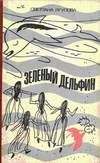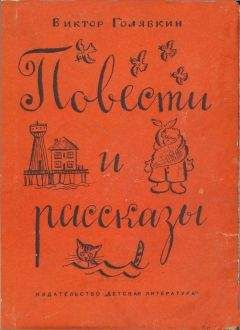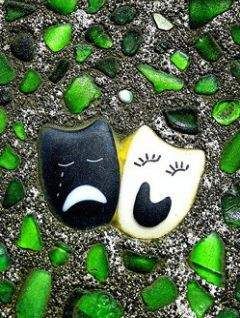DIANE DUANE - A Wizard Alone
That s them, Kit thought. Ponch, come on, Kit whispered. Over here Together they moved off to one side of the hallway as the group approached. Kit started examining them for signs of that faint, glowing halo.
There were five kids in the group. Three of them were girls of different ages, one quite short and round, the other two taller and thinner; they went by Kit in silence, not speaking to each other, though one of them was smiling a placid smile. Two teachers followed close behind,then came the two boys and a third teacher.
One was a thin, small, blond guy, who went pastwith a very uneven gait. But Kit s attention was on the boy behind him. Visible only to Kit andPonch , the locator halo clung to him. He was, perhaps, eleven years old, an African American kid with a handsome, sharp little face. He was slender, and was dressed in jeans and a bright T-shirt and beat-up sneakers. Handsome his face was, but also expressionless, flat and as still as a mask, his eyes looking only at the ground. He held his body tilted slightly forward, and he went past Kit fast, breaking almost into a run as he headed through the doors out into the cold, gray day.
Kit turned and followed him back outside. The teachers helped the other kids into the van: Darryl was the last one in. One of the teachers was helping him with his seat belt. This took some moments. And while the teachers were sitting down, while the van driver came back to let the school door close again, Darryl began, very slowly and steadily, to bang his head against the window of the van.
Kit s heart seized. Next to him,Ponch stood looking. The driver started up the van, and slowly drove away.
That was him,Ponch said.
That was him, Kit said softly.But what s the matter with him Though he thought perhaps he had a clue. The manual would be able to confirm it now that Kit knew what kinds of questions he needed to ask.
Did you get a scent on him Kit said.
Yes. I can find him again, wherever he goes. Even when he s not here, like a few moments ago,Ponch added.
Kit gave his dog a look. What He was right in front of us.
Some of him.Not all.
Ponchwasn t given to making cryptic statements without reason: He was still developing the language skills to tell Kit what hewas perceiving , and there were sometimes misunderstandings as a result. Okay, Kit said. We ll figure out what that means later. For the moment, at least we know what he looks like and we can start making a plan to find a way to talk to him.
If he can talk at all
He glanced at the timekeeper inside the front cover of the manual. Come on, Kit said. I have to get back to school.
And you have to feed me.
Normally Kit would have laughed at this, yet another ofPonch s stratagems to get an extra meal. But the laughter had been knocked out of him by the unexpectedness of what he d just seen.Since when do the Powers That Be dump an autistic kid into an Ordeal
Come on, Kit said toPonch . They went home.
After school Kit went straight to Tom and Carl s, the discreet way, to tell him what he d found.
Physically, he s there all right mostly, Kit said, sitting at the table with Tom again. Or soPonch says. I m still working on what he meant by that conditional description he gave me.But Darryl s problem Why didn t anything about it turn up in the manual before
Need-to-know restrictions, possibly, Tom said. And often enough themanual ll let you find outsomething for yourself, rather than just tell you about it. That approach can keep you from prejudging a situation. He paged through his own manual to Darryl s entry. Certainly it confirms that he has an individualized type of autistic disorder. The manual says it s a fairly recent development. He hasn t been autistic from a very young age: It seems to have come on him suddenly, shortly after he turned eight.
So the Ordeal itself didn t have anything to do with it
I don t know that for sure. It wouldn tseem to be connected but we could be wrong there. At any rate, because the manual doesn t say anything further, it suggests that the Powers That Be don t think we need any more detail on that particular facet of the situation. Or that what you discover during investigation may be more valuable than whatThey already know.
It doesn t seem fair somehow, Kit said after a moment, trying to find words for what was making him so uncomfortable. You d think he has enough problems. Why s he been stuck in the middle of an Ordeal, on top of everything else
Tom shook his head. If he s been offeredwizardry, that means that there s some problem to whichbe is the solution. But he can t merely have been offered wizardry; he also has to have been able to agree to the offer. He found the Wizard s Oath, in some form or another, and he accepted it. Now we have to find out how we can assist without removing the basic challenge.
Kit nodded. It makes you wonder, though, he said. Ifhe s the answer, what s the question
I think I know what you mean, Tom said. He does seem an unlikely candidate. But even in what we laughably refer to as normal life, all too often the unlikely people turn out to be the ones who have the answers; the objects you would have thrown away are the ones you find you can t do without. The stone rejected by the builder becomes the cornerstone. Tom got a wry look then. It happens too often to be accidental. Is the universe trying to tell us something important about the way it works that sometimes even what we call fate has an element of unpredictability
Kit nodded. Or maybe the One s just saying, Don t be so sure you know it all.
Tom stretched and leaned back in his chair. Could be. There are people in our world who ve made a tremendous difference but who would have died in another time. In this time, people every day are making choices of who should live and die on the basis of criteria like whether you re going to be the right sex, or whether your whole body is going to work perfectly. Who knows how we may damage ourselves if we insist too hard on what, this week, looks like perfection.
He stopped, a somewhat rueful expression coming over his face. Sorry, Tom said. But being a wizard makes philosophers out of most of us eventually. As long as that s notall it makes of you, you re okay Anyway, now you have to plan how to approach him. Tom chewed one lip briefly. You may have to go to his home, secretly. But maybe you d have better luck at his school.
I m not wild about sneaking around in his house,
Kit said. School, yeah. I d thought about that, too. But there are still too many ways to be noticed. I was considering another option.
Oh
Ponchhas been able to treat someone s interior landscape like an exterior universe before, Kit said. He can go into Darryl s head and take me with him and maybe Darryl will find it easier to talk to me that way.
Tom brooded over that for a moment. My initial reaction, he said, is to say no. We re uncertain enough about how the heckPonch does what he does. Add that set of imponderables to whatever s going on inside Darryl s head He shook his head. It starts getting uncomfortably complex.
We re wizards, Kit said. We re supposed to learn how to get comfortable with the uncomfortably complex.
Tom gave Kit a look that would have seemed annoyed if there hadn t been a resigned quality to it as well. In theory, he said, of course, you re right.But turning theory into practice without taking due care and attention can screw things up big-time.
Kit sat quietly, knowing better than to argue his case too hard with aSenior : That was a sure way to make it seem like he had some kind of ulterior motive.
Tom looked off into the middle distance, pondering. Yet here s this very atypical Ordeal, he said, and we can t just let the kid go on suffering unnecessarilyfor the sake of caution and correctness. Some more information gathering, at least, seems prudent. But I want you to be very,very cautious, and watch yourself at least as carefully as you re watching him. Even normal Ordeals are subjective, and getting another entity s subjectivity involved with one, even temporarily,brings considerable dangers with it.This Ordeal, where the candidate is autistic Heshook his head. It might be an attempt to resolve the autism, which is likely to be incredibly traumatic for Darryl whether it works or not or it might simply be about some mode of wizardry we haven t seen before, one that involves Darrylstaying autistic. What looks like our idea of normal function may not, in the One s eyes, be the best function. Judgment calls in these cases can get dangerous.
If you don t judge, though, Kit said, or at leastdecide to dosomething , nothing gets done!
Tom sat still and looked out the window, where a cold wind was rattling some brown,unfallen beech leaves in the hedge beside his house. There you re right, he said. Not that that makes me any happier. But judgment calls are one of the other things we re here for: The One has better things to do than micro-manage us.
He looked back at Kit. So go do what you can, Tom said. Let me know how it comes out. But I want to really emphasize that you need to stay in the observer s role. This Ordeal is strange enough to get extremely dangerous, especially if you stray out of your appropriate role.
I ll be careful.
Tom s expression got slightly less severe. I ve heardthat one before, he said. From myself, among many others. But, particularly, I want you to watch yourself when you re inside his head. Talking to Darryl is a good idea but getting too synced to his worldview may make that more difficult, not less. Talking is something you do toother people; if he has trouble with that concept, you could get in trouble, too. And when you re inside someone else s head and using wizardry, no matter how careful you are, there s always the danger of rewriting his name in the Speech. Do that in such a way that Darryl buys into the rewrite, and you take the risk of excising something that makes the difference between him passing his Ordeal and him never coming out of it. Walk real softly, Kit. We will.
Kit left Tom s by use of another transit spell, one that let him out in a sheltered spot by the town library. He spent a while there Web surfing, printing out what he d found, and then located a few books and checked them out. His mother was up when he got home, showering; by the time she came out, wearing her bathrobe and drying her hair, Kit was lying on the living room floor with papers and books all around him. His mama paused, looking over his shoulder at one of the printouts he was reading. Autism she said.
Yeah.
She headed past him into the kitchen to find her big mug, filled it with the coffee that Kit s pop had left in the pot for her, sugared it, and came back in to sit down on the sofa behind him. Big subject, son, she said.
You know much about it
Enough to get by. She drank some coffee. There are a lot of different kinds, and we re still feeling our way around to the causes. Once they thought autism was caused by being raised wrong, by having parents who were cold or abusive. That theory got thrown out a long time ago. But there are still a lot of possible causes, and some of them seem to include each other. Some autism may be too little of one chemical or another in the brain. Or it may be caused by an enzyme that s missing, so that certain chemicals build up in the nervous system and damage it, or make it behave erratically. It may be caused by something wrong with the immune system, or rogue antibodies that attack brain and neural tissue, or even a virus, or pollution, or vitamin A deficiency She raised one hand in a who knows gesture, then let it fall. There re a hundred answers, maybe all of them right sometimes Is this for school
No. It s what Tom wanted to see me about.
His mama s eyes went wide. Yourmissing person He s autistic Oh, honey, that sterrible! His parents must be heartbroken. Do you think you re going to be able to find him
I already have, Kit said, sitting down at the table and tilting his chair back to rock on its rear legs. He s at school.Centennial, over inBaldwin .
What Well, that s a relief! I thought you d meant he d vanished. So how is he missing
It was just a figure of speech, Mama. Kit had been wondering for a while how much detail he should givehis parents about his wizardry. Now it occurred to him that he should have been giving them a lot more, if only to keep them from worrying. When the wizardry first comes to you, it doesn t come all at once. You get a test first:your Ordeal. If you pass, you re a wizard. If you don t
Immediately, the look on his mother s face suggested to him that he might havemisstepped . Youdie his mother said.
Not always, Kit said. Sometimes you just lose the power that was given you to take the test with. His mama was looking at him rather narrowly now, and Kit realized that she would immediately detect any attempt to soften this. But it s true that some kids don t come back, Kit said. Some disappearances are failed Ordeals.Maybe a few percent.
His mother sat, quietly digesting that, and had another drink of her coffee. So this Ordeal, she said. He s having some kind of problem with it
He s been in the middle of it for a long time, Kit said. He may need help. And I can t help thinking the autism has something to do with it. He sighed. I ve been doing a lot of reading, but I don t know anything about what s going on in his head yet. And he may not be able to tell me. I think I m going to have to get in there and take a look myself.
In hishead His mother looked alarmed. Kit, my love, I don t claim to understand the details of what you re doing but wouldn t that be a violation of his privacy
Maybe, Kit said. But couldn t you make a case that CPR is, too Still, you do it.
To save a life, yes.
That s what this might be, Kit said. Ordeals are crucial by definition, Mama. I had some help on mine. Maybe now I get to pay those favors forward.
So you get inside his head how, exactly his mama said. Is this whatCarmela keeps describing as magic telepathy
Kit shook his head. It s more complicated, he said. I m still working out how to describe it.Ponch sees it as making a new world to go to or finding that world ready-made. Once you make it, or find it, you go there.
Ponchsees it His mother shook her head, sloshed the coffee around in her cup, drank some, and made a face: It was going cold.
We ll go there and look around, Kit said. We ll see what his world looks like to him. Assuming we can get in all right.If that doesn t work I ll have to think of something else. But at least this is a place to start.
His mother put the cup down and pushed it away. If you do actually get to talk to him, she said, looking thoughtful, there s possibly something you should keep in mind. Autistic people have trouble, sometimes, predicting what other human beings minds are going to do. It s a skill they have to develop with practice, whereas we take it almost completely for granted, that prediction inside: If I do this, then she ll do that, and so on. So you have to be prepared for the things you say to really upset him, more than would seem reasonable. He may even have trouble believing in you.




